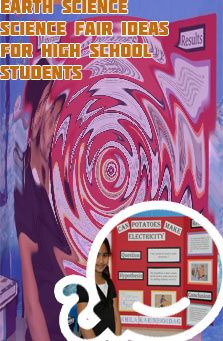Experimental activities
Materials and Methods
The predominant instruction methods in university experimental activities conforms to the traditional style (also called expository, deductive or "recipe type"). This style relies exclusively on laboratory manuals to create a situation where the student performs the activity following a procedure established by the teacher so as to achieve the objective in question. There is another non-traditional style (also called student-centered, inductive or investigative) in which the particular student plans and carries out the research needed to answer a particular problem, enhancing the respective cognitive tools in a way the traditional style does not1. Science project unique ideas This site uses Akismet to reduce spam. Learn how your comment data is processed.
Pjas project ideas
These experiments require the expertise of a teacher or Professors Mom & Dad. 47. Monitor air pressure with a DIY barometer Probiotics project. Ceglar is combining his research and experimentation with his Genius Hour project. Since 1936, students like Ceglar have been able to create projects through PJAS, the oldest STEM organization in Pennsylvania. 
The STEM Connection:
Didn’t see one you like? Don’t worry…look over them again and see if they give you an idea for your own project that will work for you. Remember, find something that interests you, and have fun with it. Rising Water Experiment 22. Which common material is the best heat conductor? Find out with this science fair project that can be done with adult supervision, as it needs boiling water.
Elementary science fair ideas
It sounds like a wild dance move, but this easy science experiment demonstrates Archimedes’ principle of buoyancy. All you need is aluminum foil and a container of water. 70 Easy Science Experiments Using Materials You Already Have On Hand 2. Want to really WOW your kids? Try out this leak-proof bag science experiment. It’s like a magic trick, but it’s really science!
|

